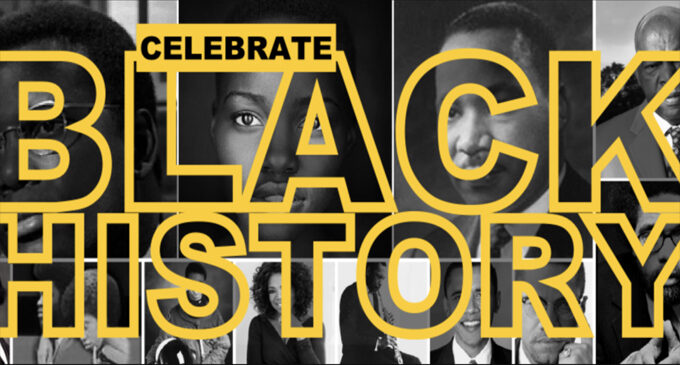Unexpected lessons

By Howard Pearre
Mr. Rousseau saw me glance at the dozen tattered copies, front covers torn off, of the classic “Everything You Always Wanted To Know About Sex (But Were Afraid To Ask)” on the trailer classroom bookshelf.
“I’m not supposed to, but I lend them out to my students,” he told me. “Otherwise they’ll learn it from their friends, and that can lead to unfortunate consequences.”
I had completed the requirements for a bachelor’s degree in history at UNC Charlotte and was tacking on an extra semester for a teacher’s certificate. I’d absorbed all of the in-class instruction Dr. (Sister) Mary Thomas Burke’s team had to offer. Now, I only needed to complete three months of student-teaching at Independence High School in eastern Mecklenburg County.
Full of inspiration, I was assigned to Mr. Odis Rousseau, who would oversee my instructing teenagers about Black history and sociology four periods a day. I watched his personal, quasi-counseling classroom approach for a week and realized I couldn’t match his knowledge or wisdom. I had taken one sociology course a few years before and never one in Black history. But with no shortage of gumption, I figured I could just read a couple of chapters ahead of the students and roll.
Little did I know.
Things were happening in Charlotte in 1972 that would impact my little classroom world in ways I failed to appreciate. The Charlotte-Mecklenburg school system, along with many other Southern school systems, had dragged its feet implementing the Supreme Court’s 1954 Brown v. Board of Education decision to desegregate public schools. Sixteen years later, U.S. District Judge James McMillan, who lived in Charlotte, had become impatient with the slow pace of implementation and ordered that system to begin busing thousands of students to achieve immediate desegregation. His order, as Bob Woodward in The Brethren attributed to Justice Potter Stewart, “put the Court on the spot.” In 1971, after much internal contention, the Supreme Court upheld the busing order unanimously. Flight to the suburbs no longer would be an option for white parents who feared integration. Heated arguments filled school board meetings. Judge McMillan was burned in effigy and subjected to death threats.
Mr. Rousseau, a large Black man highly respected by students of both races, was called on to perform duties more important in those tense times than hand-holding a novice teacher. In an era before assistant principals roamed the halls, Mr. Rousseau served at Independence in that capacity without the title. I rarely saw Mr. Rousseau after my first week. When I did, it was usually in the halls as he directed traffic and calmed waters with a warm smile and a rolling laugh that resonated all the way from the cafeteria entrance to the gym lobby.
While my classroom was never the scene of direct conflict, there was underlying tension. The Black history classes were comprised primarily of Black students along with a handful of white students, most of whom sat together in small bunches. The white students arrived via school buses or cars from the rural parts of the county, and the Black students rode buses from inner-city Charlotte. Many of the Fords and Chevys in the student parking lot were adorned with Confederate flag commemorative plates. That the white students had signed up thinking they would be studying Confederate history presented additional challenges. One day, in an attempt to enhance learning, I allowed a student to play a recording I had not prescreened about the “Black experience.” Some of the white students walked out and I wound up having to write an apology to their parents.
Otherwise, I was able to stay ahead of the students, administer pop quizzes, and stick to lesson plans. I learned some high school level Black history and that day-to-day teaching is a tough path. Near graduation, I began seeking employment with school systems in two states, but a job market flooded with new social studies teachers, and the fact that I still had some GI Bill left, convinced me to go in another direction.
When I reflect on my experiences as a student teacher, I have a much greater appreciation now than then of the role my mentor Mr. Rousseau was playing in that volatile time, and of Judge McMillan’s courage in forcing the hand of the Supreme Court, whether or not busing achieved its intended goals.
I also understand that the stress I felt trying to maintain order and teach academic material to teenagers was small compared with what the teenagers were feeling, having been drafted into an intractable social justice struggle not of their making.
Howard Pearre served in the Army from 1966 to 1969. As a student teacher in 1972, he witnessed efforts to achieve racial desegregation through busing following the 1971 Supreme Court decision, Swann v. Charlotte-Mecklenburg Board of Education. He retired after a career as a counselor and manager with N.C. Vocational Rehabilitation and the Department of Veterans’ Affairs. “Unexpected Lessons” first appeared in “Trouble,” Vol. 5, Personal Story Publishing Project, 2021, Daniel Boone Footsteps Publishing, and the podcast on the Jan. 15, 2021 episode at RandellJones.com/6minutestories. Pearre is a member of Winston-Salem Writers where he serves on the board of directors.









